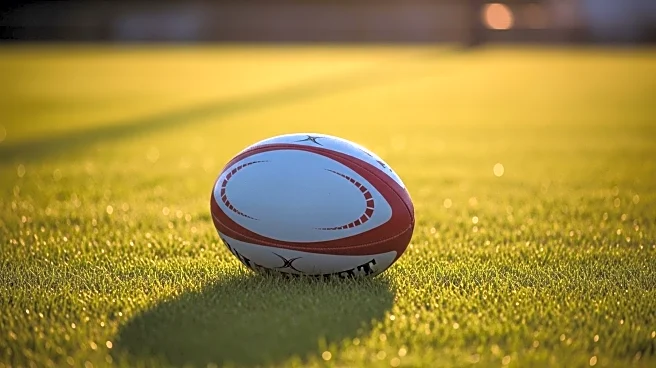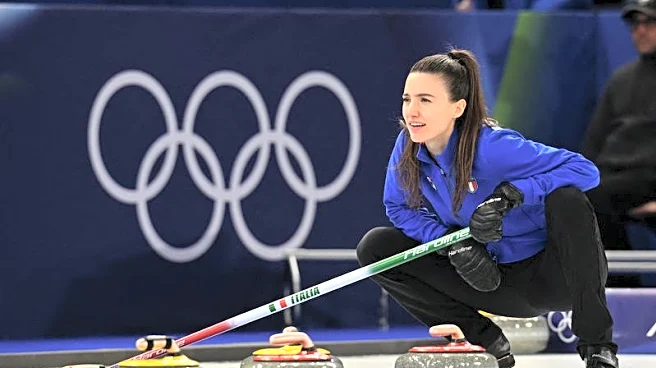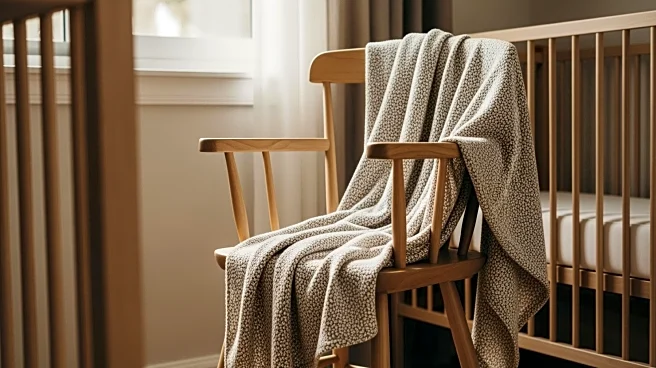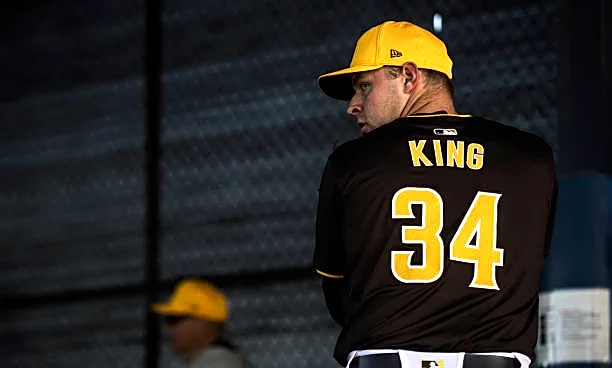What's Happening?
Rugby Australia has reiterated its commitment to women's rugby following reports of potential budget cuts. The organization plans to maintain a minimum of 10 Test matches annually from 2026 to 2029, including the Pacific Four and WXV Global series, and tours of the USA and Europe. This announcement comes after Women's High Performance manager Jaime Fernandez resigned due to budget cut concerns. Rugby Australia has more than doubled its investment in women's rugby over the last World Cup cycle. Interim coaching appointments have been made, with Sam Needs as head coach, Gill Bourke as assistant, and Andy Friend as technical advisor. Player contracting for the 2026 season will begin immediately.
Why It's Important?
The reaffirmation of Rugby Australia's commitment to women's rugby is crucial for the development and visibility of the sport. By ensuring a robust schedule of international matches, Rugby Australia is providing opportunities for female athletes to compete at high levels, which can enhance the sport's popularity and encourage more participation. The investment in women's rugby reflects a broader trend of increasing support for women's sports, which can lead to greater gender equality in athletics. The decision to maintain funding and resources is vital for the Wallaroos' preparation for the 2029 Women's Rugby World Cup, potentially boosting their performance and international standing.
What's Next?
Rugby Australia will proceed with player contracting for the 2026 season, ensuring continuity and high standards as they enter a new World Cup cycle. The organization will finalize its national women's rugby delivery model, aiming to elevate the Wallaroos' performance. The upcoming Super Rugby Women's season plans remain uncertain, with discussions on potential expansion to include New Zealand's Super Rugby Aupiki competition. Budgeting challenges are a key consideration in these plans, which could impact the structure and scope of the competition.
Beyond the Headlines
The commitment to women's rugby by Rugby Australia highlights the ongoing challenges in securing adequate funding and resources for women's sports. This situation underscores the need for sustainable financial models to support women's athletics, which can lead to long-term growth and development. The focus on high-performance programs and international competition can drive cultural shifts, promoting greater acceptance and support for women's sports at all levels.











